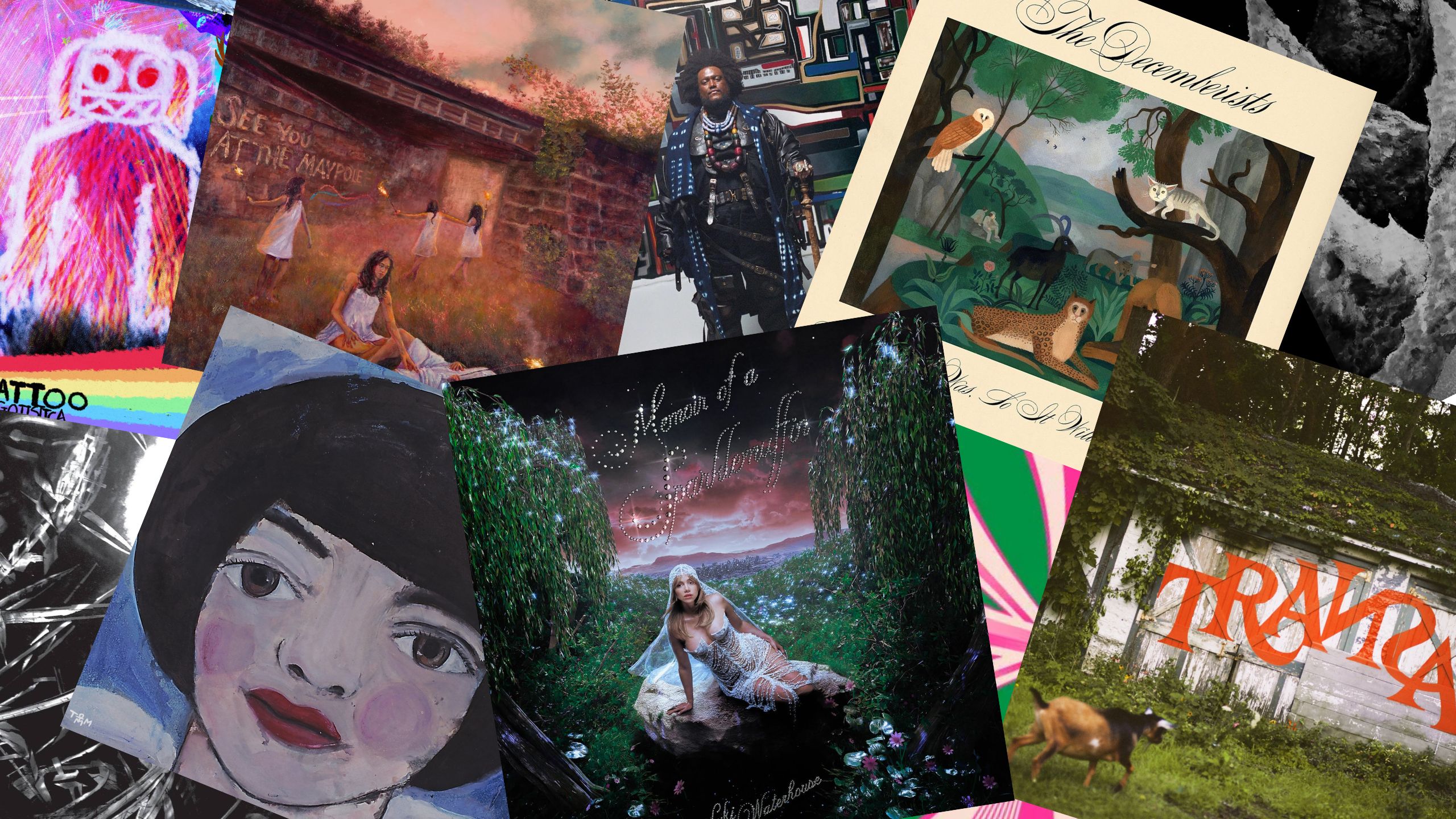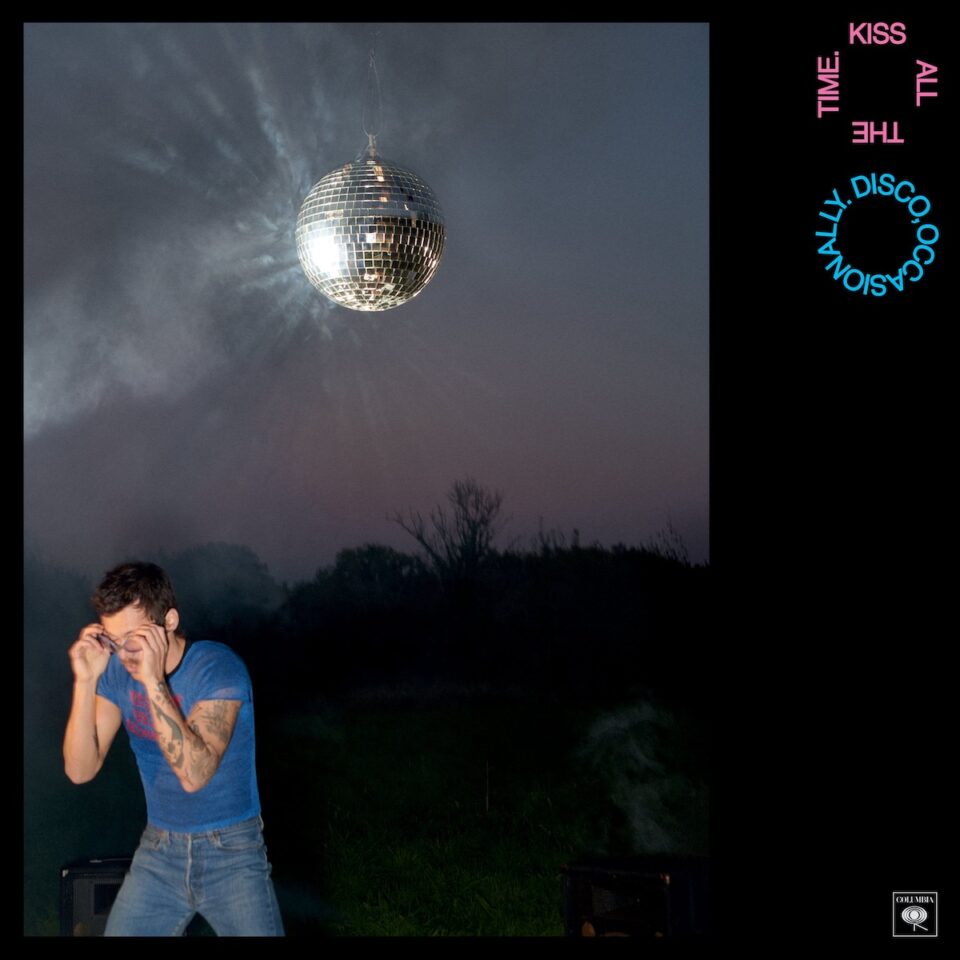We’ve officially left the era of Kanye West behind—not just because it may be news to many of you that the once-ubiquitous rapper released two albums this year that few music outlets bothered to acknowledge, but also because we no longer look to the man for cultural forecasting, whether it be tiny sunglasses or 30-minute album runtimes. His new releases are taking the form of bulky multi-part series that appear to be released the moment he has enough tracks to fill them, which seems to contrast with 2024’s trend of the well-considered double LP making a resurgence, most prominently with Beyoncé’s Cowboy Carter and Taylor Swift’s latest buffet of tortured poetry or whatever.
If you dig a little bit deeper, you’ll find that two of the year’s biggest albums (as decided by FLOOD and seemingly most of our peers) were Mount Eerie’s epic return LP Night Palace and Cindy Lee’s breakout not-on-streaming opus Diamond Jubilee. Redd Kross took up the format on the self-titled record released alongside their documentary and autobiography this year, as did Hovvdy with Hovvdy and their fellow indie-pop duo Good Morning with Good Morning Seven. Maybe it’s more expected from experimental, jammy, and/or heavy acts like Einstürzende Neubaute, Sarah Davachi, Nicolas Jaar, Colin Stetson, Mountain Movers, or Crippled Black Phoenix, but then again, maybe pop music is getting closer than it’s ever been to these fringe figures.
Below are 10 albums that we felt best exemplified the double album’s strong suits across various genres and formats, including epic folk-rock balladry, longform jazz and black metal, and star-studded benefit collection. For the sake of avoiding repetition, the aforementioned titles have all been omitted because they’ve already been included in the Best Albums list. That or, in the case of the Vultureses, they were not very good.

A. G. Cook, Britpop
As an artist who’s spent his career exploding the manicured myths of over-produced pop and R&B by aping their most en-vogue elements, heightening each detail of their melodies and rhythms to their simplest form, then turning the whole thing on its ear, A. G. Cook offers up a logical conclusion to whatever experimental kick he’s been on since his 2020 debut 7G with the beyond-double-bubble Britpop. Stretching past hyperpop and into another mechanized realm altogether, the three Britpop discs representing Cook’s past, present, and future may be icily calculated in their portrayal of his fumblingly fun electro debut, his currency in guitar-strewn “close-mic vocal” pop-rock, and the possibilities of a robo-freeform Muzak to come. Yet any producer or melody maker creating songs as emotional as “Soulbreaker” and as magical as “Out of Time” is working more from a fleshy, tender heart than from their cold, smart brain. And all of that takes time, effort, and more than a few vinyl slabs. — A.D. Amorosi
Read our full review of Britpop here.
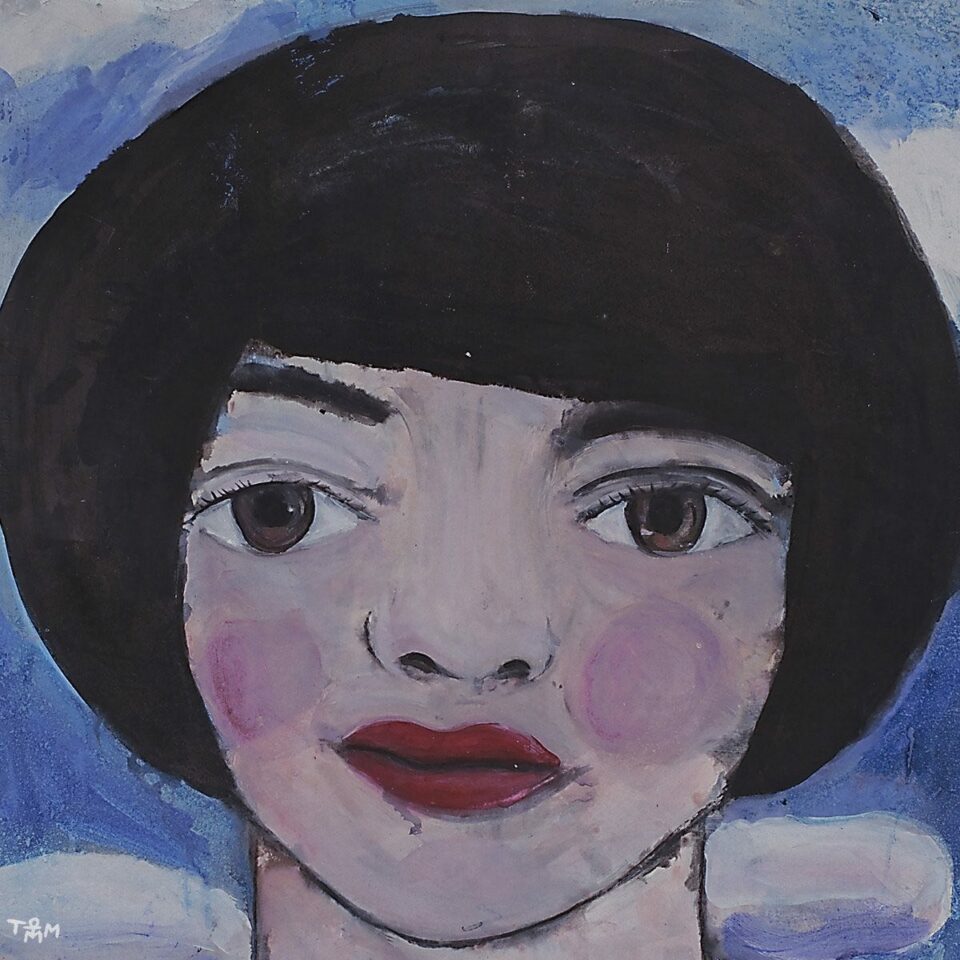
Bonny Light Horseman, Keep Me on Your Mind/See You Free
Sometimes a supergroup’s greatest strengths are only fully illustrated when their collective voices are given room to sprawl, as heard on folk trio Bonny Light Horseman’s third record. Keep Me on Your Mind/See You Free embraces the multiplicity of impulses that come from this collaboration between Anaïs Mitchell, Fruit Bats’ Eric D. Johnson, and Josh Kaufman, bringing greater clarity and more space to the project’s range than ever before. Part of the coherence comes from how fluidly all three songwriters carry themselves this far into their work together, their dynamic so generously egalitarian that their voices drift in and out of one another on several tracks. It makes the stylistic detours, like the country sing-along of “Singing to the Mandolin,” feel more like patches in the record’s vast fabric than mere diversions. By the time the record closes with the latter half of the album’s title track, it feels as if the double LP’s scope could stretch even further than the bounds drawn here, as if Bonny Light Horseman could keep exploring the furthest reaches of their symbiosis long after the needle has been lifted from the groove. — Natalie Marlin
Read our full review of Keep Me on Your Mind/See You Free here.
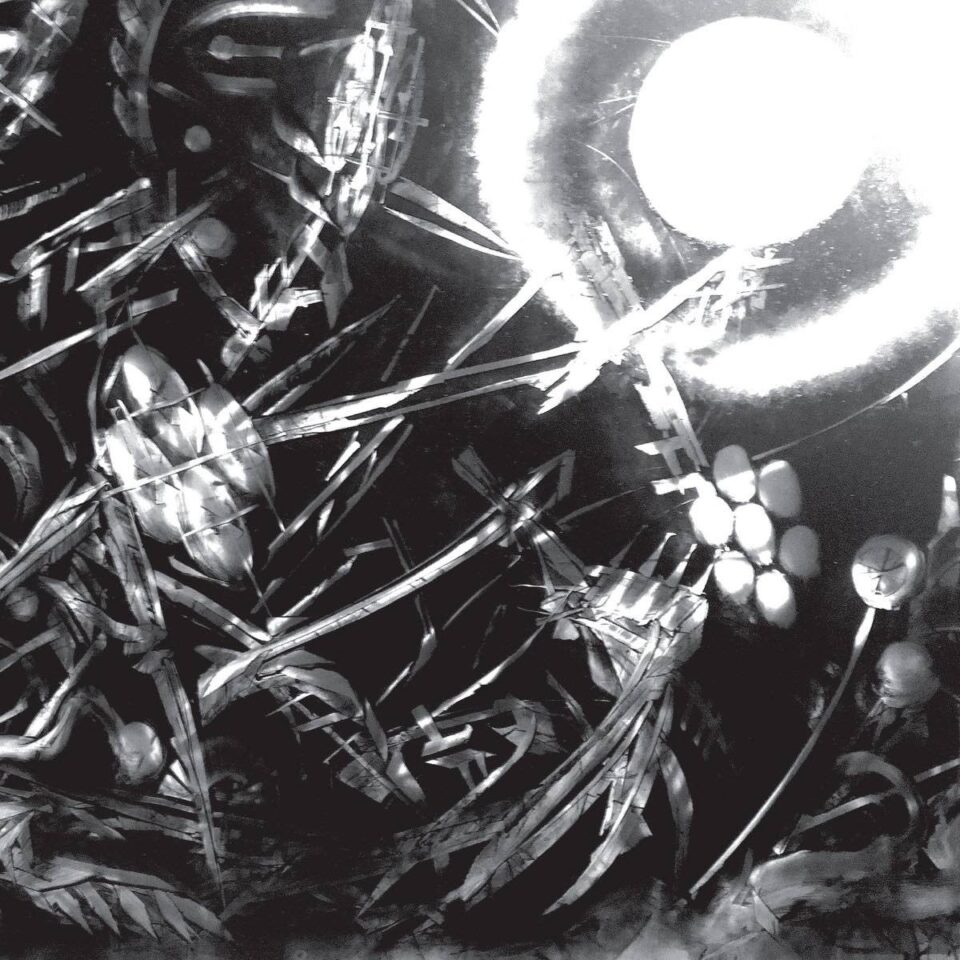
The Bug, Machine
Is UK-based producer Kevin Martin—the not-so-joyful buzzer behind The Bug—making grimy dub-techno heavier than the heaviest of heavy metal, or is he pursuing a career in pressure-cooking doom-hardcore with the supplest of electronic twists and rhythmic turns? From The Bug’s most punishing music across Machine’s two operose albums, my guess is that he’s splitting the baby with the bathwater, then setting its tub on fire. Going back to 1997’s Tapping the Conversation, The Bug has long been fond of raging, discordant emo-metal’s wiry, fired-up thrum teamed with his love of explosive, industrialized, Bomb Squad–era hip-hop grooves and the insect menace of tiny, intricately wound sound effects. What the incendiary instrumentals of Machine—an expansive package made up of five recently recorded EPs that Martin uses as his live shows’ “opening act” beyond his burning flash pots and blast beats—do is update his bruising brand of metal machine dance music for people who like Stomp, the trashcan lid musical, and wish it had no intermission. Like, ever. — A.D. Amorosi
Read our full review of Machine here.
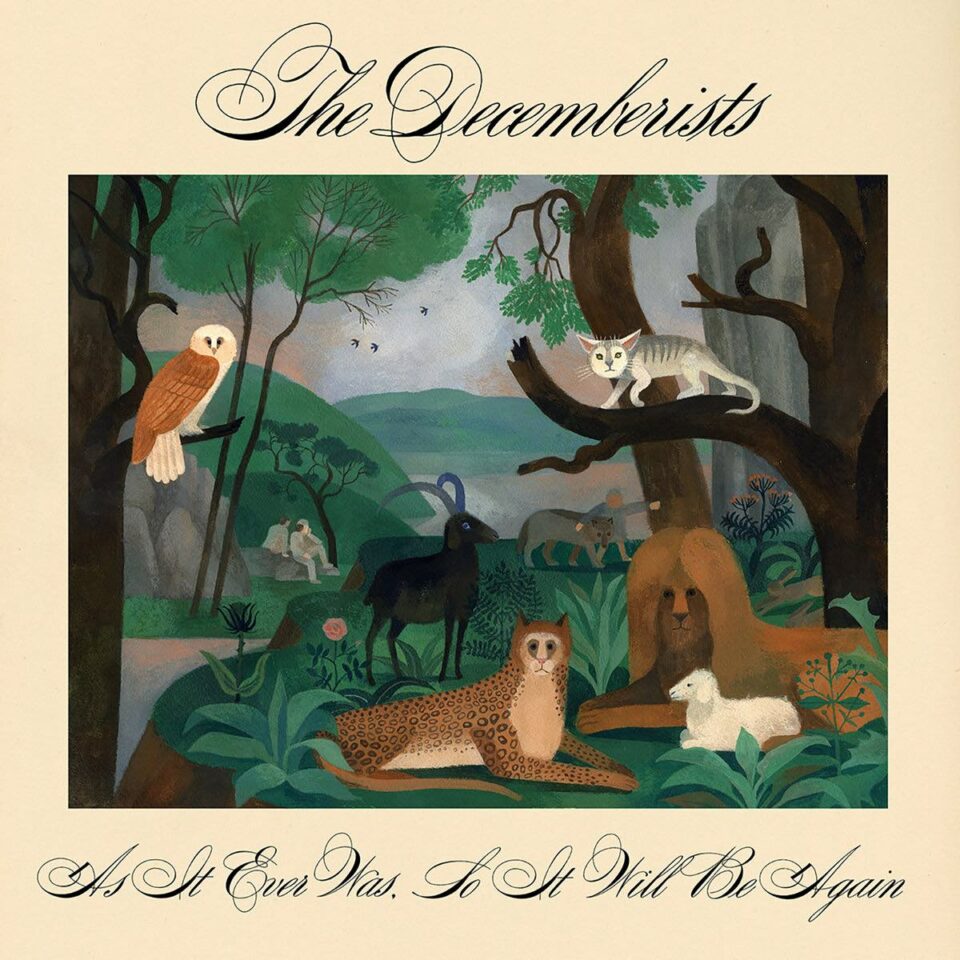
The Decemberists, As It Ever Was, So It Will Be Again
Many double albums would make a killer single disc, but such a reconfiguration of The Decemberists’ first effort in six years would be a crime. There’s simply too much good stuff on the Portland band’s ninth album to limit it to one LP. Opening with “Burial Ground,” which sounds like The Beach Boys having fun, fun, fun at a cemetery, and closing with the nearly 20-minute, D-side-filling prog epic “Joan in the Garden,” As It Ever Was, So It Will Be Again is a tour de force of singing, songwriting, and musicianship. There are multiple highlights on every side, including the one-two punch of the somber “The Black Maria” and the stunningly beautiful and direct “All I Want Is You.” The C side kicks off with “Born in the Morning,” which sounds like a lost ’60s hit from Jay and the Americans updated for the 21st century. As frontman Colin Meloy sings in the opening track, “Pack up the stereo, meet at the burial ground”—and don’t forget this fine two-record set. It’ll be one hell of a picnic. — Craig Rosen
Read our full review of As It Ever Was, So It Will Be Again here.
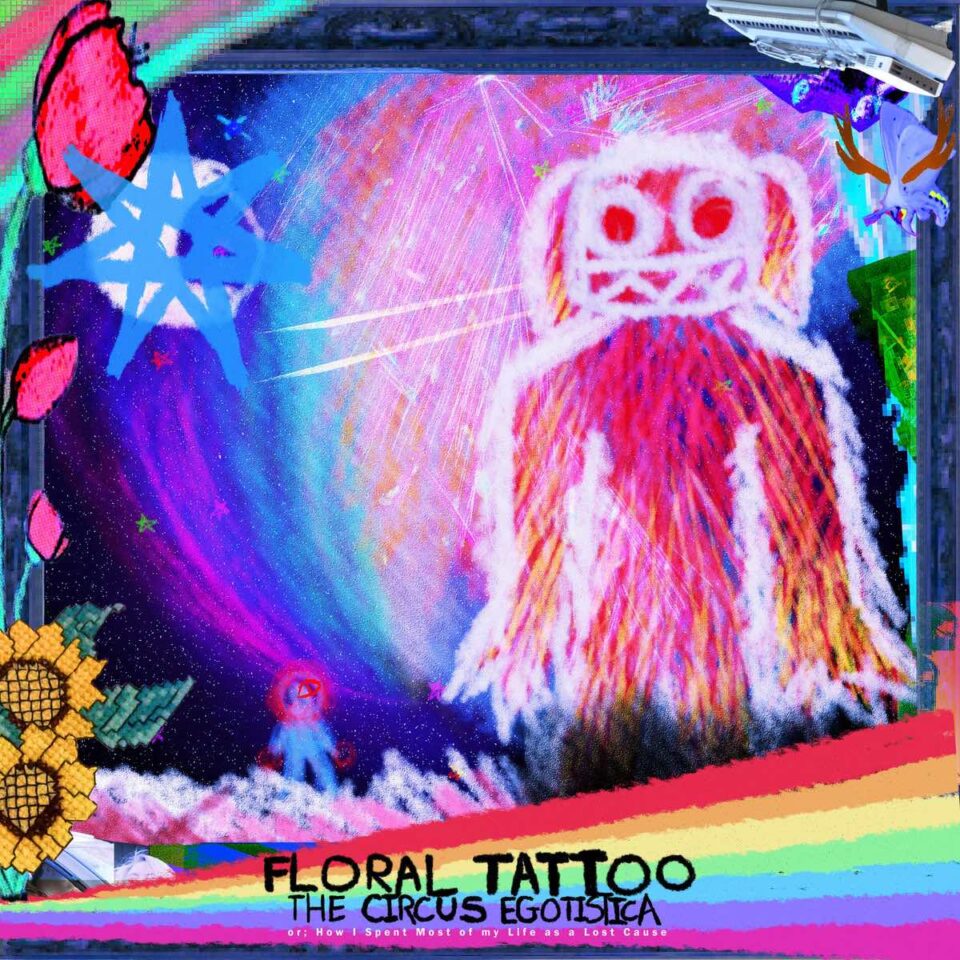
Floral Tattoo, The Circus Egotistica: or, How I Spent Most of My Life as a Lost Cause
I’ll be honest, if I hadn’t been firmly won over by Floral Tattoo’s two previous records, I never would’ve hit play on an 80-minute fifth-wave emo epic frantically grafting together countless subgenres—reaching as far out as psychedelic space-rock—that also weaves a complex narrative about identity, as reflected by paragraph-length song titles. And I’d be all the worse for missing out on one of my favorite listens from 2024, which is exactly why I’m pitching it here as the emotionally and musically cathartic Ants From Up There to Glass Beach’s considerably more chaotic Cavalcade, a whirlwind of influence that includes vocal passages recalling both Nico and The B-52’s with at least one Enya interpolation in the mix. It’s a lofty endeavor even before you consider its length, though it’s the catharsis found in the late-album 10-plus-minute tracks that provides the biggest payoff—beyond, of course, the Sully-level miracle that is the rousing final track’s landing. — Mike LeSuer
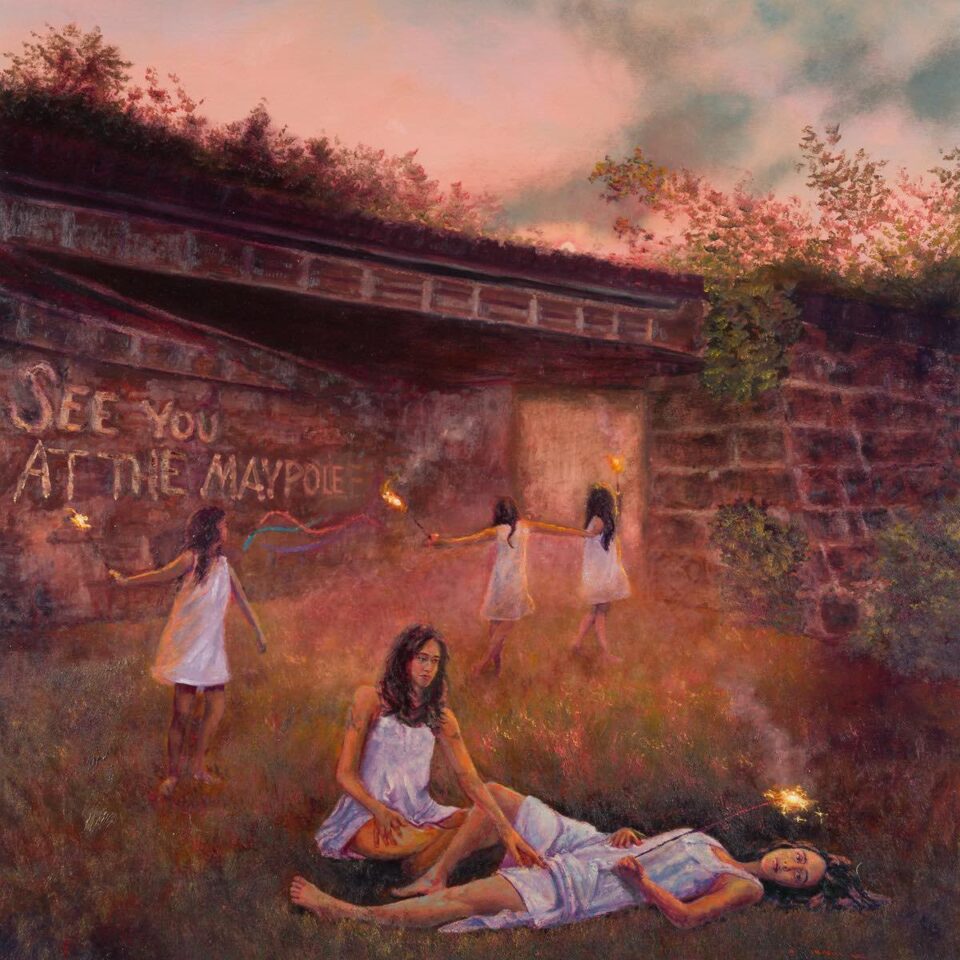
Half Waif, See You at the Maypole
Half Waif’s Nandi Rose sings as if she can see the timeline of a wound. It doesn’t make it any less tender, but her vocals render the pain transformative as she mourns the before and welcomes what comes after. See You at the Maypole draws from a well of pain that feels infinite: she’d endured a miscarriage around the same time her mother-in-law was diagnosed with pancreatic cancer. Maypole encapsulates a time of grief that forever shifted Rose’s intra- and interpersonal understandings—how we build our identities around those close to us and how their inevitable absence is as impactful as their presence. These 17 tracks take on the stark, fierce length of long winters where the world feels close to an end. But as the earth sheds an old version of itself, readying for rebirth, so does Half Waif. It feels like we move through the seasons, the two moods of winter and spring overlapping, each emphasizing the other’s beauty via their differences. These songs look to nature as a reassuring guide, that the loss of leaves is followed by new buds, that the migration of geese is not a final goodbye but a cyclic return. — Margaret Farrell
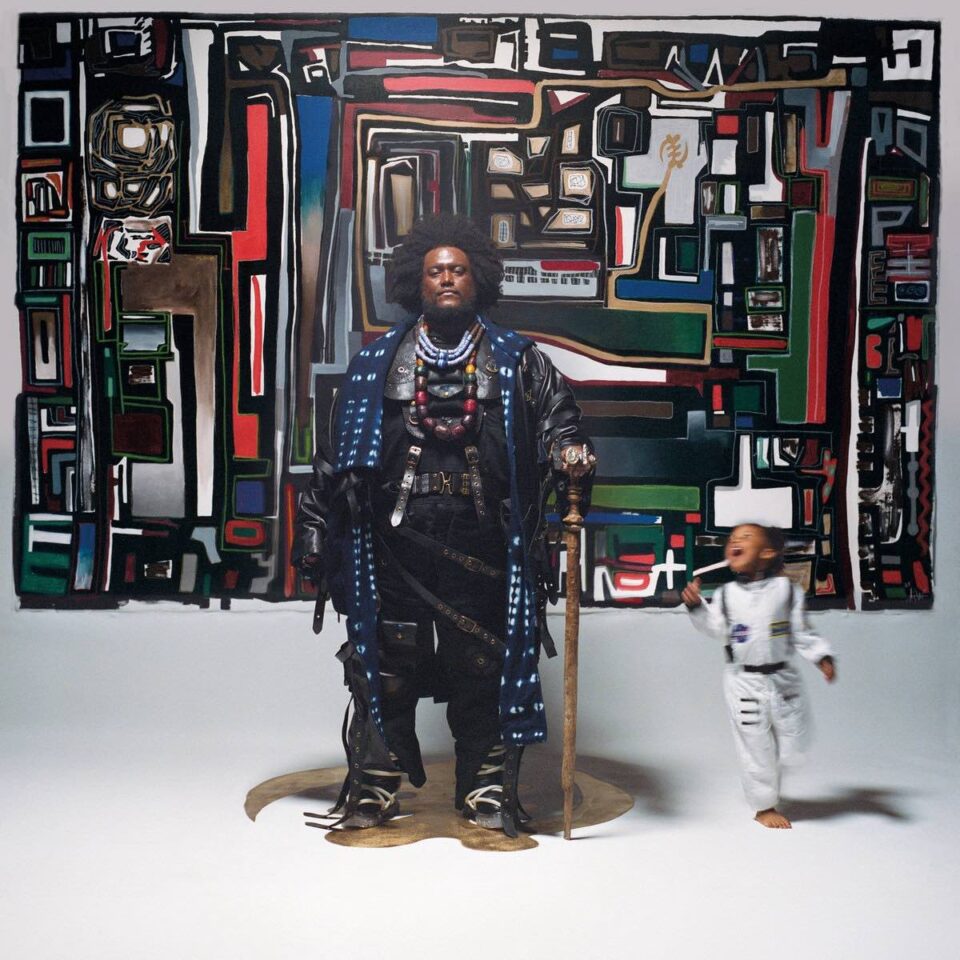
Kamasi Washington, Fearless Movement
Kamasi Washington is no stranger to the double album: his 2015 debut The Epic arrived as a triple, and even his more “pared-down” releases, like the 2017 EP Harmony of Difference, are imbued with an expansive sense of scope. On Fearless Movement, that space is cosmic yet intimate, and lush with genre-bending sound. Inspired by sharing records by Coltrane, Eric Dolphy, and Ornette Coleman with his two-year-old daughter Asha, Fearless Movement begins with a prayer sung in Ge’ez (the language of the Ethiopian Orthodox Bible), which gives way to more invocations on “Lesanu”: “Sing unto the Lord, a new sound.” To create that new sound, Washington fuses elements of spiritual jazz, West Coast rap, and Kraftwerk allusions alongside fellow travelers including André 3000, George Clinton, Taj and Ras Austin, and long-time collaborator Thundercat. The result is that his vision is clearer than ever, his far-reaching style a natural fit for communicating the inspiration and awe of becoming a father. On “Asha the First,” he gives voice to this quite literally over a piano melody that Asha composed—“Now my heart is free, staring back at me.” — Annie Parnell
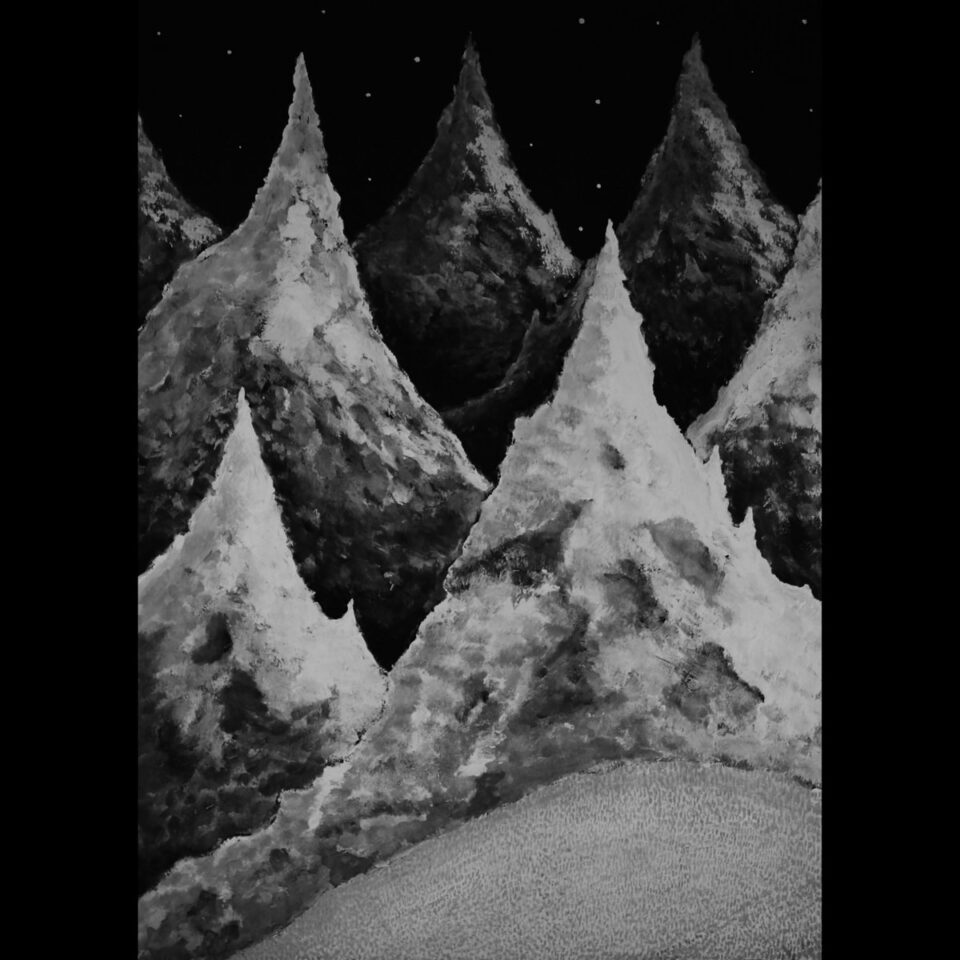
Paysage d’Hiver, Die Berge
OK, this one kind of feels like a free space—if you write songs that are on average 15 minutes long, you’re bound to require the double-LP format for your record. Perhaps it’s telling that Tobias Möckl’s project significantly stepped up its game after 2021’s Geister, a dose of dark ambient–tinged atmospheric black metal that would be just as hypnotic as Die Berge were it not for the relatively piddling six-minute song lengths. Additionally, the new record largely forgoes the ambient passages (paysages?)—aside from the genre-necessitated nocturnal woodland field recordings that open each track—in favor of non-stop, blistering riffs which seem to congeal into a dense fog of overwhelming noise somewhere around the halfway mark on each of these songs. It’s the perfect winter listen if you’re trying to kill time as snow builds up outside. Or if your dad is chasing you through a hedge maze with an axe during a particularly intense bout of writer’s block. — Mike LeSuer
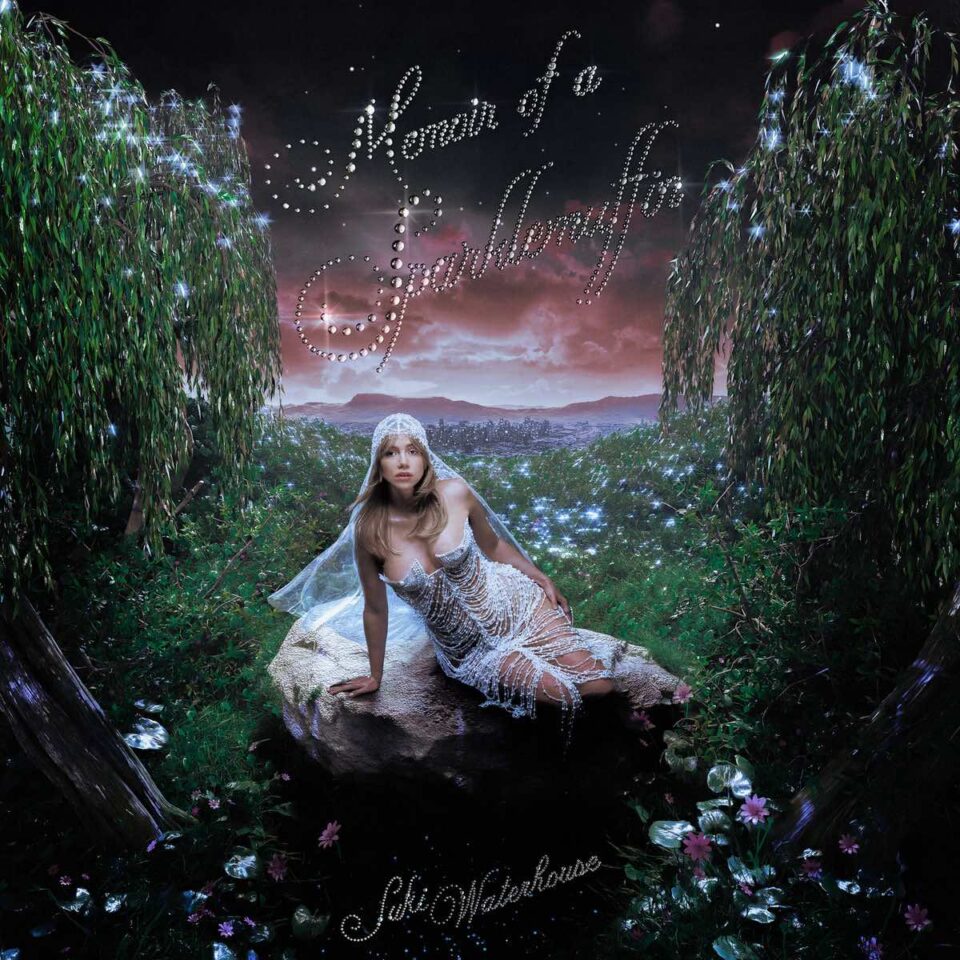
Suki Waterhouse, Memoir of a Sparklemuffin
Though some have criticized Memoir of a Sparklemuffin’s lack of pop hits, the laid-back aura of Suki Waterhouse’s double LP seems purposeful and even a large part of its charm. Sparklemuffin is more contemplative and restrained than Waterhouse’s past work, moving away from her pop-heavy sound. Instead of going full stadium mode, though, she mines a large assortment of guitar-heavy indie elements and finds herself closer to Phoebe Bridgers than Taylor Swift. It’s not a typical for pop artists, but this surprising redirection shows Waterhouse’s ambition to be taken seriously as a singer-songwriter and not become just another cookie-cutter pop act. Memoir of a Sparklemuffin is intended to be listened to closely and it rewards the listener with its surprising depth. Technically speaking, its construction feels more akin to classic double LPs like Mellon Collie and the Infinite Sadness or Speakerboxxx/The Love Below—not in style or genre, but in ambition and novelty. Sparklemuffin is smooth and easily digestible, a solid effort from Waterhouse that showcases her growing powers as a songwriter. — Juan Gutierrez
Read our interview with Suki Waterhouse about Memoir of a Sparklemuffin here.
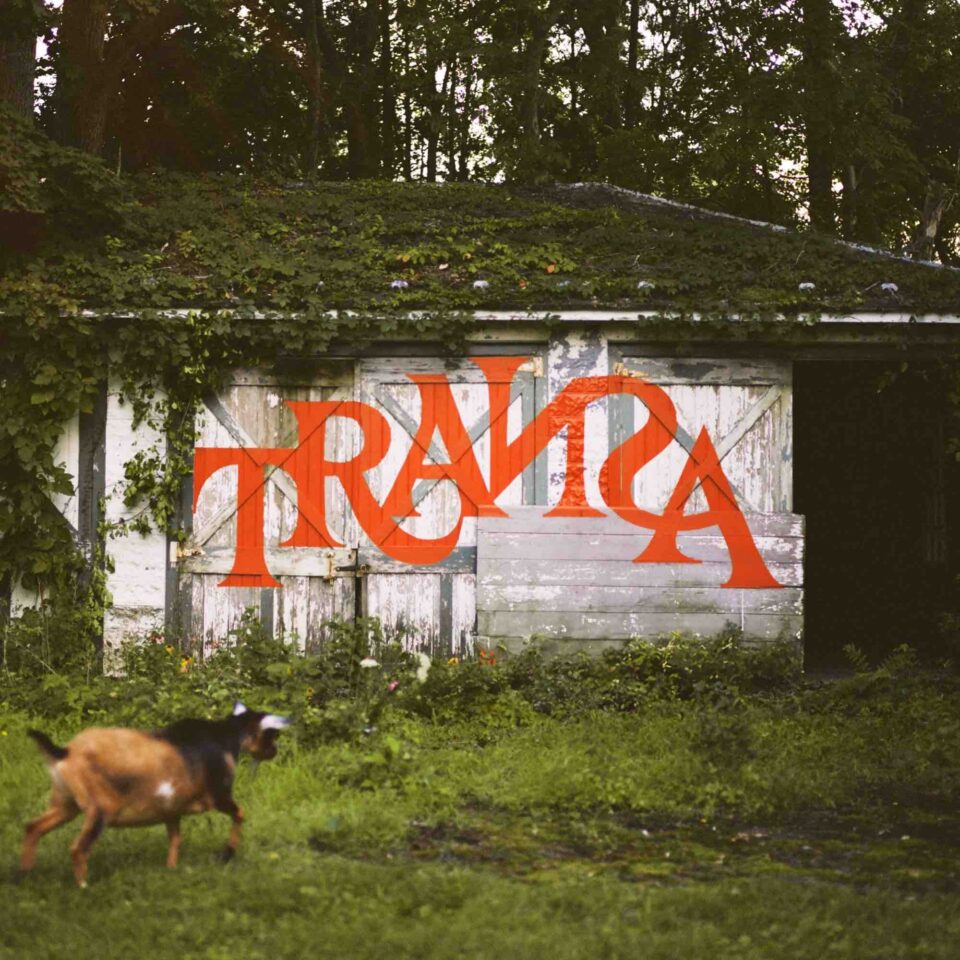
various artists, TRAИƧA
Since its founding in 1989 and its first multi-artist release a year later, Red Hot has never skimped when it comes to accruing as many diverse artists as possible to sing for the org’s supper. Twenty-five themed albums recorded by some 500-plus artists of all color, creed, sound, and sexual identification have, so far, raised over $10 million for HIV/AIDS relief and awareness across the globe. And while that speaks to the diversity of its willingness to stretch for the sake of cause, Red Hot has never focused on the “T” in “LGBTQIA” until now. TRAИƧA brings a wealth of trans and non-binary artists together, many of whom have remained in the shadows for decades—like pre-punk glam goddess Jayne County hooking up with new-school punk Laura Jane Grace, or vocalist Lauren Auder rolling sexy through Prince’s “I Would Die 4 U” with Wendy & Lisa of the Revolution, or Moses Sumney doing double TRAИƧA duty, first with Sam Smith on gay-icon Sylvester’s “You Make Me Feel (Mighty Real),” then swinging with ANOHNI on SOPHIE’s “Is It Cold in the Water?” Before the package is through, Sade, Jeff Tweedy, Devendra Banhart, Blake Mills, André 3000, Hunter Schafer, and many more get to show off what they got. But no star here is bigger than Red Hot and its TRAИƧA scheme of things. — A.D. Amorosi
Read our interview with John Carlin and Jayne County about TRAИƧA here.

